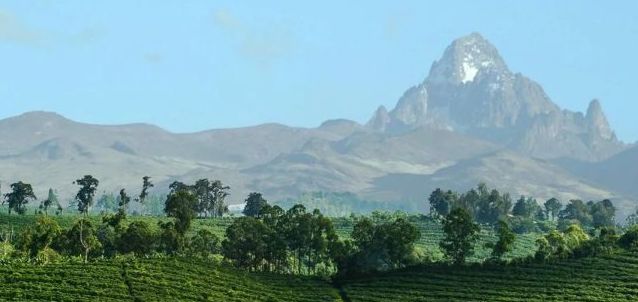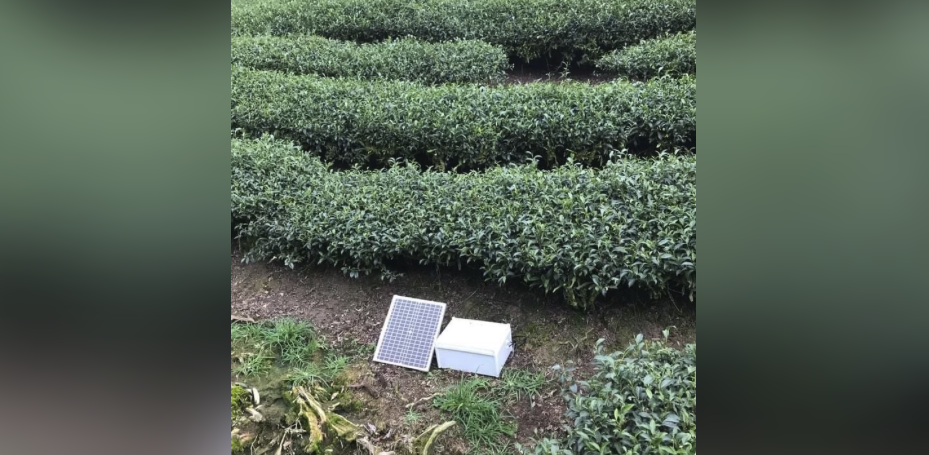The first cup of black tea in spring, the flavor and history of tea gardens in Kenya, Africa
Since the Zhou Dynasty more than 3000 years ago
The relationship between Chinese people and tea is inseparable.
But you may never have thought
As far away as Kenya on the African continent
Is the country that exports the most tea.
And the story of Kenyans and tea
Let's start with two Englishmen a hundred years ago.
The first tea a hundred years ago
The History of Tea in Kenya

In 1903, in the small town of Limuru in central Kenya, an Englishman G.W.L. Caine planted a tea tree to beautify his courtyard, and the tea took root 2100 meters above sea level in Mount Kenya. Later, the Englishman Arnold Butler McDonell bought about 2124 acres of land in Limuru and began to grow on the farm on the land.
In the following decade, McDonell continuously tried corn, coffee, flax and other crops, but all ended in failure. It was not until 1918 that his friend brought him tea seedlings, which enabled him to realize his dream in the fertile land of Kenya. Just like Karen runs a coffee farm in "out of Africa", McDonell, who successfully grows a lot of tea, became the first person to make and sell tea in Kenya.
At first, all the tea was processed in his Kiambethu tea garden and sold to traders in Nairobi. Soon, the rich-colored, mellow drink became popular and was grown in other parts of Kenya. As a result, Kenya's inextricable bond with tea has officially begun to be written.
The charm of Green Gold
The "strength faction" of the tea industry with good reputation
Today, Kenyan tea has become the raw material of many well-known international tea bag brands, such as French veteran tea merchant Mariege Freres, British royal tea brand Twinings and so on. Lipton Black Tea, who is well-known, not only chose the original leaves of Kenyan tea, but also directly built his own tea garden in Kenya.
Kenyan tea is certainly excellent enough to be selected by these international brands and become the fourth in production and the first in export in the world. Taking root on the fertile volcanic soil in the rift valley, with the geographical advantage of 1500-2700 high altitude, long enough sunshine, almost zero insect pests, sufficient rainfall and a special geographical location across the equator, Kenyan tea gardens have the guarantee of high yield that sprouts all year round.
When it comes to the picking season, these leaves are carefully selected after almost 100% hand-picked, and then use the world-friendly CTC black tea processing technology to produce Kenyan tea with rich tea flavor and mellow tea soup. For locals, the most authentic way to drink Kenyan tea is to add milk and sugar. Among them, ginger milk tea (Masala Chai), a "national beverage" made of black tea, milk, sugar and ginger, appears in the corners of Kenya.
If you want to experience the charm of tea in Kenya, you might as well go to the local tea garden. Nandi Hills, located in the west of the Rift Valley, Kericho, known as the "tea capital", and Limuru, on the eastern edge of the Rift Valley, are recognized as one of the best tea-producing regions in Kenya.
There are many tea gardens around Nairobi, and the famous Kiambethu farm is one of them. Here, you can not only visit the tea garden, learn about the history of the farm and tea-making technology, but also go to the surrounding forest to find traces of wildlife under the leadership of the farm owner. 100% organic vegetables and desserts, African colobus monkeys and unnamed birds will add a different color to your tea trip.
Kericho, the largest tea producing area in Quankan, is another popular travel destination. It only takes about an hour to get to the place where more than half of Kenya's tea gardens are located by small plane from Nairobi. Out of sight of the continuous tea garden, comfortable tea Hotel Theme, a set of black tea production process, a mouthful of pure and full-bodied black tea, this tea-hunting trip can be called perfect.
Of course, there is also tea in the coastal area of Kenya. As one of the major distribution centers of international tea trade, Mombasa is another excellent place to experience the charm of Kenyan tea. Here, choose a quiet afternoon, find a tea restaurant to sit down and meditate on the taste of tea on the tip of your tongue.
- Prev

The computer can not only choose potatoes, but also grow tea rice. AI will grow winter oolong tea champion.
Minshi University of Science and Technology of Hsinchu County used AI artificial intelligence technology to guide tea farmers to improve the tea growth environment and the production and baking process. Unexpectedly, it unexpectedly won the first prize in the evaluation of oolong tea from Nantou Lugu Farmers' Association this year. People can see that computers not only "can pick potatoes, but also plant tea". In the future, they plan to use technology.
- Next

Related
- The first cup of black tea in spring, the flavor and history of tea gardens in Kenya, Africa
- The computer can not only choose potatoes, but also grow tea rice. AI will grow winter oolong tea champion.
- It is not only the inflated tea bitten by insects, but also engraved with the four seasons tea in Beipu.
- The Oriental Beauty Tea Festival in Zhuxian County takes the stage at the weekend to experience the plus-size feast of oil tea.
- & quot; Oriental Beauty Tea & Exploration of Emei in Hsinchu, the hometown of quot;
- The new variety of strawberry "Tainong 1" dessert is the first choice with mellow aroma. Crimson gorgeous
- History of Tea in Taiwan: from Wild Inner Mountain to Export Tea Garden
- Two types of Taiwan Oriental Beauty Black Tea won the British three-Star Award for Childhood Tea Xiang Zhang Jiaqi changed from pilot to champion tea maker.
- Banana species and varieties: the planting history of Taiwan Xianren banana and dwarf banana is long, is banana disease resistant?
- Coffee planting Technology: Qianjie Coffee from Seedling to harvesting

